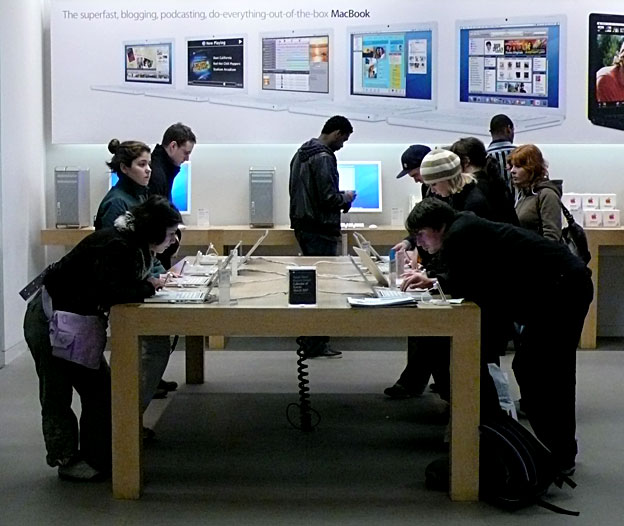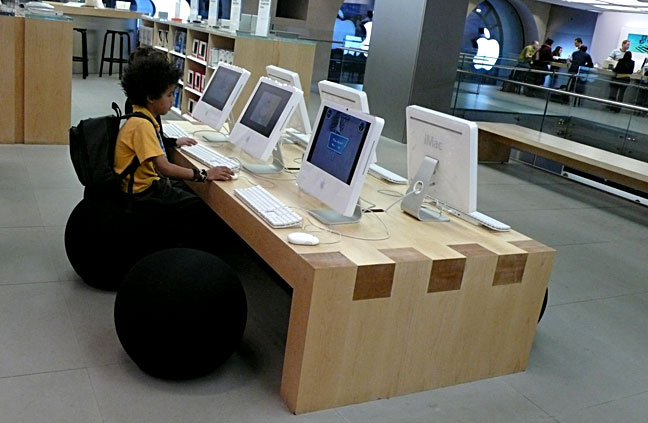Q: Since its introduction at Macworld Expo, people have questioned the success of the iPhone. Could you talk a little about why Apple will be successful.
A: The iPhone is a revolutionary product. Steve mentioned this at Macworld, revolutionary products only come along so often: the Mac in 1984 re-invented the computer industry. The iPod in 2001 re-invented the music industry. And we think the iPhone is that class of product for the cell phone industry.
It’s a revolutionary cell phone with visual voicemail. It’s the best iPod that Apple has ever done and its this “really cool” internet device with desktop-class email, browsing, maps, and searching — all in one product. I think people are going to be amazed and delighted over it. We’ll have to see. Obviously, there are people who would prefer us not be successful in this, but I think it’s a revolutionary product. And we’ll see what the customers think. That’s the most important thing.
Q: Your stated goal for calendar 2008 is to ship 10 million units, which is about 1 percent of the overall market. Given the functionality and price point of the product, it eliminates the low end of the market. How do you look at the available market for the first generation of iPhone and what kind of marketshare do you think you can take?
A: The traditional way of look at a market you look at products you are selling, you think about the price bands that are currently market, you look at price band your product is in, and you assume you can get a percentage of it. And that’s how you get to the addressable market. That kind of analysis doesn’t make really great products. The iPod would not have been brought to market if we would have looked at it that way. How many $399 music players were being sold at that time?
Today in the cell phone industry, a lot of people pay zero for the cell phone. Guess what? That’s what it’s worth! And so, if we offer something that has tremendous value and is sort of this thing that people people didn’t have in their consciousness — it was unimaginable, I think a whole bunch of people will pay $499 and $599. Our target is clearly to hit 10 million and I would guess that some of those people — there are some of those in the audience — who are paying zero because it’s worth zero, will pay more a bit more because its worth it.
Q: Can you go through some of the thinking of not putting 3G in the phone, given that it is leading edge technology in every other aspect.
A: Our thinking was first and foremost that we wanted GSM because GSM was the world standard and that was one of the factors in the selection of Cingular. Secondly, the product as we announced it has wireless capabilities. Many people, like in this room, have access to WiFi, including this room, home, where you have coffee. Between this spots we are going to use 2.5G because it’s widely deployed. We’re confident that it will give the user a great experience.
Q: Do you expect iPhone to cannibalize iPod? If so, when might that kick in?
A: You know it’s still too early to tell. But I would make this point. We’ve sold 90 million iPods. 90 million. It still amazes me saying it. And these are being sold for a wide of usages: there’s a wide variety of form-factors, wide variety of capacities and a wide variety of price points. You know that there are a lot people that desire the iPod…
Good point about the iPod and the $399 music player.


